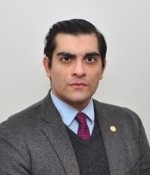An Operational Guide to end-to-end
Project Delivery
FEATURED PAPER
By Prof. Dr. M.F. HARAKE
ESLI International
Graduate School of Management & Engineering
CEREGE Research Laboratory – University of Poitiers
France
Abstract
Developing and managing United Nations projects is not an easy task to do. This article seeks to decrypt the project management dynamic of UN projects. The article reviews the processes and procedures of UN projects and programs while considering their particularities and highlighting how to attain outcomes compliant to SDGs. The paper proposes an executive approach to facilitate both technical and operational implementation of the proposed project management process.
Key Words: United Nations; Project Management; Project Delivery; SDGs.
1 Introduction
- Context
The aim of this paper is to provide an overview of the project management dynamic of United Nations (UN) agencies working on various projects, activities, etc. while considering their particularities that are specific to such entities (e.g. statues, charters, guiding principles, etc.). In other words, the article was developed after careful study and review of UN entities’ documents while highlighting the group’s own perception project management that lies on flexibility, innovation, and a learning-by-doing approach.
The article will provide a comprehensive and transparent set of rules, guidelines, and procedures to organize, regulate, and improve the management of UN projects, while focusing on project planning, implementation evaluation, and completion.
- UN Project Management
When it comes to any UN strategic plan, they all have a time horizon that is more or less centered around four years. Each plan will set its own mission, roles, goals, and objectives, as well as its major areas of focus.
Each project collaborator working on an UN-related project must keep in mind that each activity must work to resolve the pressing global problems of human survival, development, and welfare that are the concern of the UN.
It would be appropriate to note that each UN work – from an academic perspective – can be classified into three distinct, but interrelated categories:
- Program: It is a cluster of individual projects and activities that strives to achieve more overarching institutional objectives by effectively identifying and incorporating individual projects into the program so that they can contribute to its outcomes.
- Project: It is an interrelated set of activities with a specific time horizon, with both start and end dates, a defined budget, as well as allocated resources to achieve specified objectives.
- Activity: It is a task or work to be carried out by a UN team to bring a project to completion as well as to accomplish the project’s objectives. In other cases, activities may not be specifically and / or exclusively related to a particular project but contribute to the accomplishment of the objectives of a program.
- Article Dynamic
The article is designed and intended to be used as a reference by current as well as future project collaborators working on UN projects – by providing them with hands-on advice on all aspects of UN project cycle management. In short, the purpose of this publication is to assist the UN project collaborators in the preparation, implementation, monitoring, and evaluation of UN projects.
More…
To read entire paper, click here
How to cite this paper: Harake, M. F. (2024). Project Management of UN Activities: An Operational Guide to end-to-end Project Delivery. PM World Journal, Vol. XIII, Issue V, May. Available online at https://pmworldlibrary.net/wp-content/uploads/2024/05/pmwj141-May2024-Harake-Project-Management-of-UN-Activities.pdf
About the Author

Prof. Dr. M. F. HARAKE
Poitiers, France
![]()
Prof. Dr. M. F. HARAKE is a management Professor based in France. He is currently the Director of International Academic Affairs of GIP CEI (a French Higher Education and Research Institution). He is also the Doctorate in Business Administration (DBA) program manager of ESLI International – Graduate School of Management & Engineering (Paris – France) and the scientific director of the MBA DELIVERWEB at ALTERNIS Business School (Bordeaux – France). He previously served as a visiting professor at ESCE International Business School (Paris – France), Paris School of Business (Paris – France), Ascencia Business School (Paris – France), ESPRIT Business School (Tunis – Tunisia), GBSB Global Business School (Barcelona – Spain), etc.
Dr. M.F. HARAKE is a research fellow and former board member of the CEREGE Research Laboratory (University of Poitiers – France), and a visiting research fellow at CABMR Research Center (Paris – France). He is also an Honorary Academic Advisor and Research Scholar at the Project Management World Library (Austin / Texas – USA). He previously served as the Director of the CREFEGE Research Center (Paris – France). His research interests include Post-Conflict Public Management, Crisis and Urgent Operations Management, Humanitarian Logistics, and Project Management in Unstable Environments.
He can be contacted at mharake@gip-cei.com
To view other works by Prof. Harake, visit his author showcase in the PM World Library at https://pmworldlibrary.net/authors/mohamad-fadl-harake/









